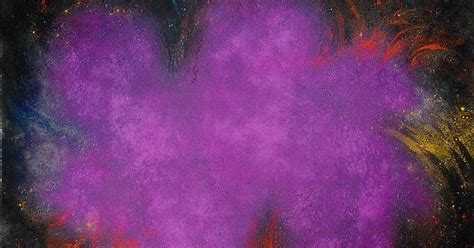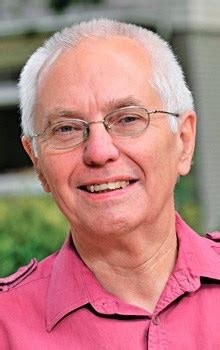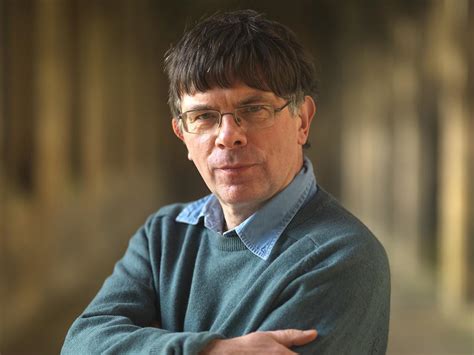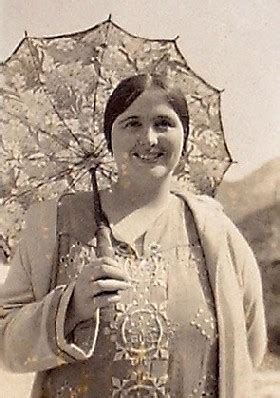A Quote by Thomas McEvilley
It is ... possible to read Plato as if he were only discussing reason and not mystical intuition in his writings but ... in that case he seems naively over-impressed by rather ordinary thought processes.
Related Quotes
Was it Aristotle who said the human soul is composed of reason, will, and desire?” “No, that was Plato. Aristotle and Plato were as different as Mel Tormé and Bing Crosby. In any case, things were a lot simpler in the old days,” Komatsu said. “Wouldn’t it be fun to imagine reason, will, and desire engaged in a fierce debate around a table?
The Bible is a collection of writings by lots of different people written over maybe a thousand years, from a number of centuries before Jesus to a century after Jesus. I often like to refer to it as "the Scriptures" to make that point about it being lots of writings that were originally separate. What these writings have in common is that "the Old Testament" is writings that grabbed the Jewish people; writings that convinced them that they were God's word to them. And "the New Testament" is writings that grabbed people who believed in Jesus in the same way.
When I talk to anyone or read the writings of anyone who has any axe to grind, I feel that intellectual honesty and balanced judgement have simply disappeared from the face of the earth. Everyone's thought is forensic, everyone is simply putting a "case" with deliberate suppression of his opponent's point of view, and, what is more, with complete insensitiveness to any sufferings except those of himself and his friends.
The first step to walking in righteousness is simply to try. We must try to believe. Try to learn of God: read the scriptures; study the words of His latter-day prophets; choose to listen to the Father, and do the things He asks of us. Try and keep on trying until that which seems difficult becomes possible-and that which seems only possible becomes habit and a real part of you.
Through Plato, Aristotle came to believe in God; but Plato never attempted to prove His reality. Aristotle had to do so. Plato contemplated Him; Aristotle produced arguments to demonstrate Him. Plato never defined Him; but Aristotle thought God through logically, and concluded with entire satisfaction to himself that He was the Unmoved Mover.
In order to teach a course in the history of Western religious thought, I had to do a great deal of research in the writings within the Judaic and Christian traditions and I was astonished to find in those writings philosophical thought of great power and sophistication. These writings completely blew away all my opinions about what I had taken to be the irrationality or immaturity of religious ideas, opinions which were and still are fashionable in many intellectual and literary circles today.
The opposition of instinct and reason is mainly illusory. Instinct, intuition, or insight is what first leads to the beliefs which subsequent reason confirms or confutes; but the confirmation, where it is possible, consists, in the last analysis, of agreement with other beliefs no less instinctive. Reason is a harmonizing, controlling force rather than a creative one. Even in the most purely logical realms, it is insight that first arrives at what is new.
I used to do miserably in English literature, which I thought was a sign of moral turpitude. As I look back on it, I think it was rather to my credit. The notion of actually putting writers' words into other words is quite ridiculous because why bother if writers mean what they mean, and if they don't, why read them? There is, I suppose, a case for studying literary works in depth, but I don't quite know what 'in depth' means unless you read a paragraph over and over again.
There seems no intrinsic reason why everyone shouldn't be (self-actualising). Apparently every baby has possibilities for self-actualisation, but most get it knocked out of them ...I think of the self-actualising man not as an ordinary man with something added, but rather as the ordinary man with nothing taken away.
My grandfather was a most gifted person, and amongst his many qualities, one of them had always particularly impressed me. While the past was a book he had read and re-read may times, the future was just one more literary work of art into which he used to pour himself with deep thought and concentration. Innumerable people since his death have told me how he used to read in the future, and this certainly was one of his very great strengths.
Now, as there is an infinity of possible universes in the Ideas of God, and as only one of them can exist, there must be a sufficient reason for God's choice, which determines him toward one rather than another. And this reason can be found only in the fitness, or the degrees of perfection, that these worlds contain, since each possible thing has the right to claim existence in proportion to the perfection it involves.
The greater the scientist, the more he is impressed with his ignorance of reality, and the more he realizes that his laws and labels, descriptions and definitions, are the products of his own thought. They help him to use the world for purposes of his own devising rather than understand and explain it.
The mystical perception (which is only "mystical" if reality is limited to what can be measured by the intellect and senses) is remarkably consistent in all ages and all places. All phenomena are processes, connections, all is in flux...have the mind screens knocked away to see there is no real edge to anything, that in the endless interpenetration of the universe, a molecular flow, a cosmic energy shimmers in all stone and steel as well as flesh.
There is a German word, Sehnsucht, which has no English equivalent; it means 'the longing for something'. It has Romantic and mystical connotations; C.S. Lewis defined it as the 'inconsolable longing' in the human heart for 'we know not what'. It seems rather German to be able to specify the unspecifiable. The longing for something - or, in our case, for someone.
It suddenly made sense. Only twice in his life had he felt this inexplicable, almost mystical attraction to a woman. He’d thought it remarkable, to have found two, when in his heart he’d always believed there was only one perfect woman out there for him. His heart had been right. There was only one.






































